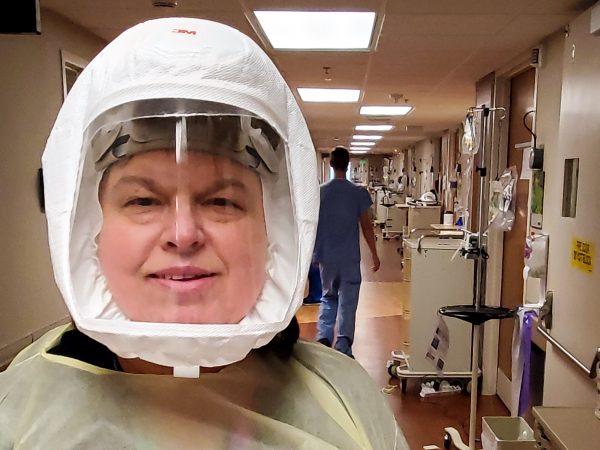On Monday at noon, a workshop co-sponsored by the Office of Diversity, Equity and Inclusion and the MLK Jr. Day Planning Committee was held, featuring three presenters who spoke on COVID-19 disparities among the African American and Latino communities. The workshop was led by Richard Aguirre, coordinator for community impact.
The presenters were Dr. Rose Alvarez Gillin, family physician; Brianne Brenneman, assistant professor of public health; and Zenton Yobera, the first student set to graduate with a degree in public health. They each spoke on their experiences related to COVID-19, and the inequities that they have witnessed in the past year.“Equity means an intentional focus to reduce disparities in opportunities, experiences and outcomes for all members of the campus community,” Aguirre said at the beginning of the workshop. “[It] is expressed in a commitment to address historical and current manifestations of social bias and exclusion, including the ways in which social arrangements disadvantage some groups and legitimize others.”
Aguirre spoke on the deeply rooted pre-existing inequities in the medical field, and how these have led to vastly different COVID-19 outcomes for different communities.
Gillin, who has a practice of majority Latino patients, explained that many of these inequities are partially due to lack of access to care and more exposure in the workplace.
“Lack of care is a big thing,” she said. “If you don’t know the language and you don’t know how the system works, it is just difficult to access care.”
Gillin said that near the beginning of the pandemic, there was a lot of confusion regarding where to get tested.
“I had an unofficial hotline for a while,” she said. “People just giving phone calls all the time, people just wondering where they could go, what it would cost, how it would work. It seemed like it was somewhat confusing for people.”
Now however, due to expanded testing and outreach, she said that testing is much more available and comprehensive.
Brenneman spoke on the social determinants of health, and the structures that make it harder for people to find equitable care.
“I really do see this as a social justice issue,” she said. “This country is built on oppression of people and color, and so our systems and the policies all reflect that. I think that that is why we’re seeing disparities in vaccine uptake.”
Yobera spoke about his experience working in the hospital, and how the spread of misinformation can lead to poor outcomes and communication breakdowns in the medical field.
“Some people still call it a hoax,” he said. “They still think it’s a lie, that hospitals are empty. But that’s not the reality.”
Yobera also commented that preconceived ideas about the Latino and African American communities not wanting to receive the vaccine or get tested have not been supported by data, and that by believing these stereotypes, we are perpetuating the problem.
“We should be careful with the stories we tell,” he said. “Because they help to shape the world we live in, and maybe we’re shaping the wrong world by telling the wrong stories.”
The workshop concluded with a brief time for questions, and advice on how to get involved. Participants were encouraged to volunteer at local organizations such as the Center for Healing and Hope and Mosaic Health and Healing Arts, and were encouraged to keep having more conversations about the root causes of inequity in our healthcare systems.



